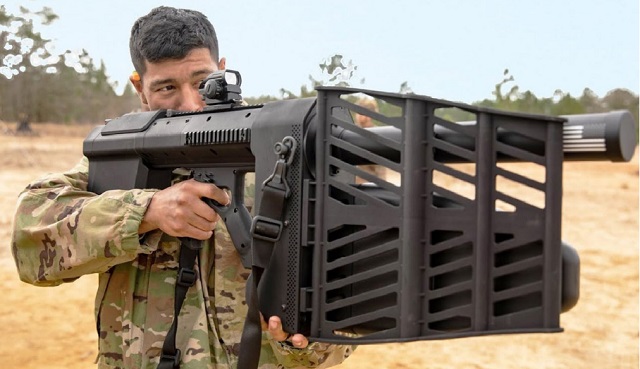
Residents of Kyiv have no choice but to go about their lives as the world tries to predict if and when Putin will invade
COMMENT | JACK CROSBIE | The calm here is palpable. Shops are open, supermarkets are stocked. On Monday, Feb.14, the tunnels beneath the city’s central Maidan Square were filled with flower sellers hawking a sea of pink, scarlet, and violet bouquets for Valentine’s Day. Despite a notable absence of tourists, the city seems placid and content, if a little empty. Commuters go about their day, trains leave on time. The weather has been clear and sunny, the temperature relatively mild for mid-February.
It’s hard to tell from walking around in Ukraine’s capital city that for weeks analysts have been frantically reading the tea leaves of violence – conflicting government rhetoric, satellite photos of military maneuvers, open-source videos and off-record sources – in an effort to determine whether the country will be dragged even further into war. It turns out this is very difficult to predict, and exhausting for the people it would actually affect.
“The most difficult thing in it is being unable to plan anything, short- or long-term, as the war can start any time,” Olena, a 27-year-old Kyiv resident, tells Rolling Stone. “People aren’t moving to other flats now. They’re thinking twice before going to the dentist. They’re trying to save as much money as possible. It’s not clear whether they’ll have a job, a place to live, or how much money they’ll need to survive.”
It’s easy to see where this uncertainty comes from. As U.S. intelligence warned of a looming invasion in early January, the prevailing theory was that Russia was waiting for the ground to freeze fully in order to provide a more stable surface for invading tanks, despite the fact that it probably wasn’t necessary. Then, analysts sagely noted that Russia was unlikely to invade until the end of the Beijing Olympics in an effort to mollify Chinese leader Xi Jiping, who was reportedly miffed when Russia invaded a former Soviet republic during Beijing’s last Olympics in 2008. That theory lasted all of a week, as U.S. officials began warning earlier this month that a Russian invasion was “imminent.” In the most distressing signal yet, the U.S. then began pulling everyone out of its embassy in Kyiv, ratcheting up their rhetoric — and response — to a new level. This brings us to Feb.15, when Russia suddenly announced the withdrawal of a fraction of its troops positioned on the Ukrainian border, claiming their “military exercises” had completed. NATO and the Ukrainian government are not convinced the drawdown is serious, and a strange spate of cyberattacks and allegations of thwarted “terrorist attacks” in Russian-controlled areas of Ukraine are doing little to reduce tensions.
In short, no one knows what’s going on.
Ivan Yakovina, a Russian-born journalist who lives and works in Ukraine, says that while he understands the America’s strategic reasons for its aggressive messaging campaign, it’s diminishing many Ukrainians’ trust in the American government and the Western press as a whole. The American rhetoric, Yakovina says, is “like crying wolf.”
The U.S. has been adamant since early January that a Russian invasion was more likely than not. Its rhetoric — and relatively new tactic of openly releasing thinly sourced intelligence claims about Russia’s plans — has been so inflammatory that Ukrainian President Volodymyr Zelensky asked Western leaders to tone down their predictions in late January. The U.S. appeared to comply, before ramping things up drastically in early February, returning to predictions of imminent violence and cautioning citizens to leave the country.
“The next time, people will not trust Americans,” Yakovina says, citing how the Biden administration has offered little to no evidence for many of its claims, such as the false flag attack Russian security services allegedly planned to carry out as a pretext for war. “It’s really Alex Jones stuff,” he says.
“If someone is telling you you’re about to die every single day, it’s very annoying,” Yakovina adds. “And then you get journalists who come to see the process of you dying. It’s really vulture-like.”
Still, as skeptical as Ukrainians are of America’s bombastic claims, many don’t buy Russia’s rhetoric either. “We learn our lessons here, so I assure you: any (of) Russia’s promises can’t be trusted,” says Olena, the 27-year-old Kyiv resident. “If (news of Russia’s plans to withdraw some troops) is true, then we might still have some time before they change their mind again.”
This sentiment is often motivated by the exhaustion that comes from eight years of war, following Russia’s 2014 annexation of Crimea. Evgeniy Shalashov, a UX designer who lives in Lviv, the major city in Western Ukraine where U.S. embassy staff have relocated, says there’s no reason to believe any of Russia’s claims, particularly after their thin denials of putting troops in Eastern Ukraine’s Donbass region at the beginning of the conflict there.
“They are sharing fake news every day. So how can we believe in that, that they are pulling back the units?” Shalashov says. “We can’t believe in their words without real actions or confirmation from our partners and international observers. The Russian government is really unpredictable. But we are calm and prepared for anything.”
That’s really the only outlook that makes sense. A Russian drawdown would be an extreme relief for millions of Ukrainians, and also a vindication of the Ukrainian government’s “keep calm and carry on” rhetoric. But there’s no guarantee that the threat of invasion is gone — the 100,000 plus troops still maneuvering on Ukraine’s border ensure that — nor is there any guarantee that America’s wild claims are backed by real intelligence. Instead, everyone, from journalists to politicians to the people of Ukraine, have no choice but to go about their days and wait for what happens next. The difference between those groups, of course, is that only one of them will pay a tangible price if the worst outcomes come true.
****
Jack Crosbie is a photojournalist and writer on conflict, human rights and more.
 The Independent Uganda: You get the Truth we Pay the Price
The Independent Uganda: You get the Truth we Pay the Price




“nor is there any guarantee that America’s wild claims are backed by real intelligence. Instead, everyone, from journalists to politicians to the people of Ukraine, have no choice but to go about their days and wait for what happens next”
HOW WRONG AND MYOPIC!!
what news is this poor excuse for journalism watching ? Once again I don’t know where you draw your information but article has been overtaken by events. Like everything else that is published in this paper in can never stand up to scrutiny once the facts are revealed